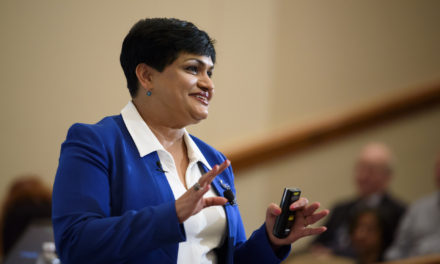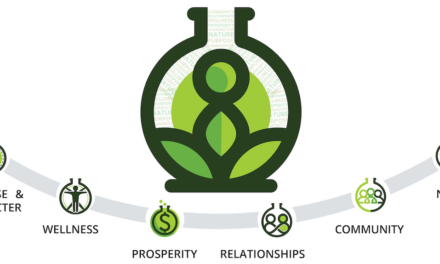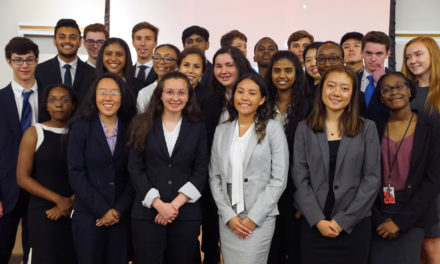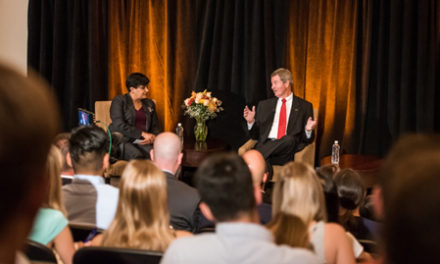Searching for Consensus on Immigration: A Civil Discussion
Searching for Consensus on Immigration: A Civil Discussion
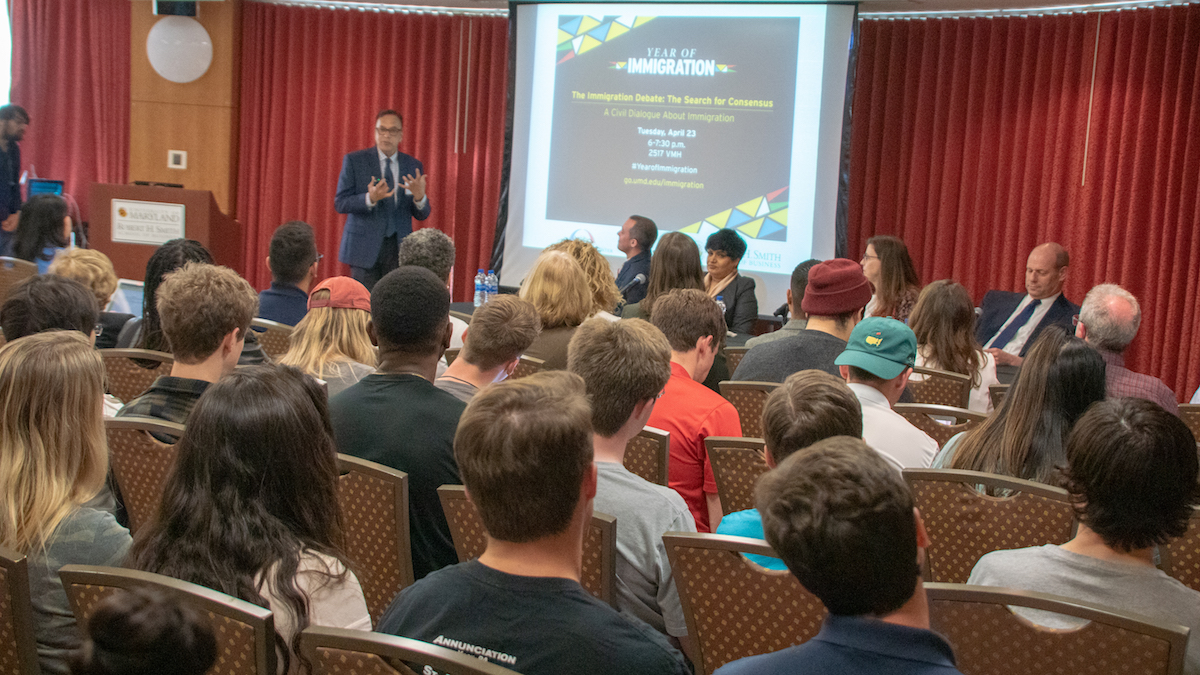
Although it’s to be expected, there’s now data gathered by the Bipartisan Policy Center that shows that University of Maryland students favor immigration to the United States, and immigrants here generally. In fact, nearly 90% of the respondents of a recent survey said that immigration helps the United States. 68% think that immigrants bring good ideas here. But 65% described our current immigration system as “broken,” 38% described the system as “antiquated” and 28% said that it was “out of control.”
On a recent balmy April evening, as part of UMD’s “Year of Immigration” initiative, the Robert H. Smith School of Business, together with the Bipartisan Policy Center, hosted a panel discussion on immigration. Entitled, “The Immigration Debate: The Search for Consensus,” the goal of the evening was to have a civil discussion about the immigration challenges facing the United States.
In his opening remarks, Dr. Kislaya Prasad, Research Professor and Academic Director of the Center for Global Business, noted that immigration is so polarized that it’s hard to have a productive discussion. “It has…become a deeply divisive issue,” Prasad said. “Too often, it is the extreme positions that are aired – over and over again, by shrill voices of people who hold immovable positions.” He said he hoped that in the spirit of civil discourse, ideas could be discussed and some common ground found.
Dr. Rajshree Agarwal, the Director of the Ed Snider Center for Enterprise & Markets, was a panelist. She was joined by Theresa Cardinal Brown, the director of the Immigration Project at the Bipartisan Policy Center and Leon Rodriguez, former Director of the U.S. Citizenship and Immigration Services. Jordan LaPier, press secretary for the Bipartisan Policy Center, moderated the discussion.
Each panelist was asked for their input to a series of questions about immigration. One question concerned the binary nature that the immigration debate has taken in recent years—LaPier asked Dr. Agarwal if it really needed to be so. “No,” said Agarwal, simply. She went on to explain that she felt it should go beyond who should and shouldn’t be allowed into the United States, and instead the focus should be about what the United States stands for. As an immigrant who first arrived in the US as a student, Agarwal has a rather unique perspective on immigration. She warned that the divisive rhetoric about immigrants and immigration would have long-lasting and potentially devastating results for the American economy. “The reality is, that if you don’t let people in for these jobs, the jobs are going to go elsewhere,” she said.
Rodriguez agreed with Agarwal, but added that a lot of the issues blocking constructive immigration discourse revolves around “raw, flat-out fear.” During his tenure as director of US Citizenship and Immigration Services, the agency worked to bring more refugees to the United States. He explained that in addition to doing this because it’s simply the right thing to do from a humanitarian standpoint, doing so allowed the United States to put pressure on other well-resourced countries to do the same. He warned that when backing away from those priorities, “…we lose all authority to hold other countries accountable, and thereby share the burden.”
Much of the discussion focused on the issues on the southern border of the United States. Cardinal Brown acknowledged a humanitarian crisis there, which “…is creating national security issues.” Historically, she said, the Border Patrol’s main function was to apprehend and return migrants who sought to evade inspection at legal ports of entry—a process that took about a day. However, the changing demographics from being mostly men looking for work, to a greater number of families – men, women, and children – seeking asylum, has shown that the existing border infrastructure needs a major overhaul.
Throughout the panel discussion, the Bipartisan Policy Center compared the data they collected at UMD with results from nationwide surveys. Participants from around the country weighed in on questions like ‘Who do you trust to offer the best solutions on immigration?’ And ‘Does immigration help or hurt America?’ These answers should help inform Congress when designing policy and working to reform the immigration system. Of the national data, Cardinal Brown said, “It tells me we have to completely remake the system,” adding, “There’s very little agreement on what’s important and how it should be run, so I don’t believe it’s just a matter of simple fixes to the system that’s already in place.”
At the end of the discussion, the floor was opened to questions from the audience. There were questions about the use of American welfare monies, and what role the United States should play in countries whose citizens are fleeing and seeking asylum here.
Overall, the discussion gave audience members a great deal to think about. And it accomplished its main goal- the discourse was thoughtful, open and civil.
Lia Kvatum is a freelance writer and producer based in Washington, DC. In addition to the Ed Snider Center, her clients include The National Geographic Society, The Smithsonian Institution, PBS, and the Washington Post. More of her work can be seen at LiaKComms.com.

